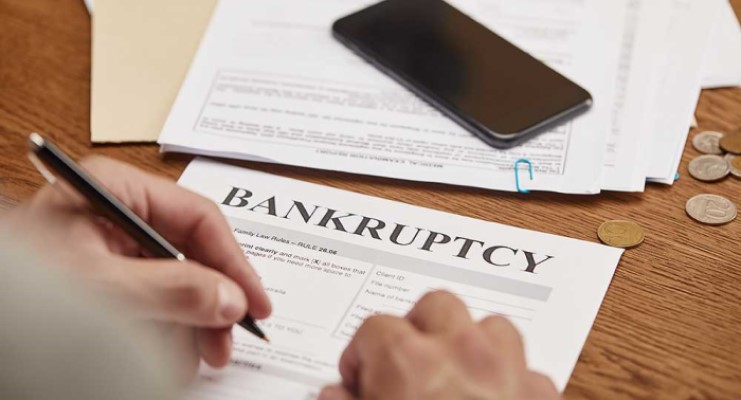Filing for bankruptcy is a significant step that can provide relief to individuals and businesses overwhelmed by debt. In New Jersey, as bankruptcy lawyers, we commonly work with two primary types of bankruptcy: Chapter 7 and Chapter 13. Chapter 7 bankruptcy is an option for those seeking to discharge most of their unsecured debts, effectively providing a “fresh start.” This process involves liquidating non-exempt assets to repay creditors. It’s typically suited for debtors who do not have a substantial income and are unable to pay back their debts.
Chapter 13 bankruptcy, on the other hand, is designed for individuals who have a regular income and wish to keep their property. It allows us to create a repayment plan to pay back all or a portion of the debts over a three to five-year period. The focus of Chapter 13 is to reorganize debt and provide a structured path for repayment that is manageable for the debtor.
In our role as New Jersey bankruptcy lawyers, we provide guidance throughout the entire bankruptcy process. Our expertise ensures that the necessary documentation is complete, deadlines are met, and clients understand the implications of their decisions. By reviewing each individual’s financial situation, we help determine the most appropriate form of bankruptcy to pursue and strategize for a successful outcome. Whether aiming to discharge debt or reorganize it, our goal is to help clients navigate their financial hardships with as much ease as possible.
Understanding Bankruptcy in New Jersey
Bankruptcy in New Jersey provides legal recourse for individuals overwhelmed by debt. We will guide you through the specifics of consumer bankruptcy, including the types available, the process involved, and how to identify the most suitable chapter for your circumstances.
Types of Consumer Bankruptcy
Chapter 7 Bankruptcy is known as liquidation bankruptcy. It’s designed to eliminate most unsecured debts, such as credit card debt and medical bills. Debtors may have to liquidate some assets to pay off creditors. To qualify for Chapter 7 in New Jersey, debtors must pass a means test, which compares their income to the median income in the state.
- Eligibility: Means Test
- Assets: Possible Liquidation
- Debts: Unsecured Debts
Chapter 13 Bankruptcy allows debtors to keep their assets and reorganize their debts into a manageable repayment plan. The plan typically lasts three to five years, after which the remaining eligible unsecured debts are discharged. This chapter is suitable for individuals with a regular income exceeding the limits set for Chapter 7.
- Eligibility: Regular Income
- Assets: Retained
- Debts: Reorganized Payment Plan
Chapter 11 Bankruptcy, often associated with businesses, can also be filed by individuals. It’s a reorganization plan more complex than Chapter 13 and typically used by entities dealing with larger debts or assets.
- Eligibility: Complex Financial Situations
- Assets: Retained and Reorganized
- Debts: Larger Scale Repayment Plan
The Bankruptcy Process
The Bankruptcy Court in New Jersey handles all bankruptcy filings. The process begins with mandatory credit counseling, then filing a petition with the court, and ends with the discharge of eligible debts. Here is the progression in stages:
- Credit Counseling: Required before filing.
- Filing Petition: Initiates the bankruptcy process in the District of New Jersey.
- Meeting of Creditors: Debtors must attend to answer questions.
- Discharge: The elimination of qualified debts upon process completion.
The timeframe and specifics vary based on individual circumstances and the bankruptcy chapter filed.
Choosing the Right Bankruptcy Chapter
Selecting the appropriate bankruptcy chapter requires a thorough assessment of financial status. Assess considerations such as income level, types of debt, the total amount owed, and long-term financial goals. Here, we break down a couple of key factors:
- Income Level: Determines eligibility between Chapter 7 and Chapter 13.
- Asset Consideration: To retain assets, Chapter 13 may be preferable.
- Debt Type and Amount: Large or complex debts might necessitate Chapter 11.
Tailoring the choice to personal financial conditions is crucial. It is recommended that debtors consult with a qualified New Jersey bankruptcy lawyer to ensure the most beneficial path is taken for debt relief.
Finding the Right Bankruptcy Attorney
When facing financial challenges, it’s crucial to have a reputable New Jersey bankruptcy lawyer on your side. We’re here to guide you through key factors to consider as you select an attorney equipped to handle your case.
What to Look for in a Bankruptcy Lawyer
We recommend prioritizing experience and specialization. It’s important that your New Jersey bankruptcy attorney has a robust understanding of both Chapter 7 and Chapter 13 bankruptcy laws. Additionally, you’ll want a lawyer who is:
- Communicative: Ensures you’re informed throughout the process.
- Accessible: Responds to your inquiries in a timely manner.
- Reputable: Demonstrates a strong track record of successful cases.
Experience in bankruptcy law is particularly essential. Look for law firms that specialize in this field, as they will have the nuanced knowledge necessary to navigate your case.
Free Consultation and Cost Considerations
Most bankruptcy attorneys offer a free consultation to discuss your financial situation. During this meeting, we believe you should:
- Understand the scope of your legal representation.
- Clarify any fees that may be associated with your case.
The cost of bankruptcy representation can vary. When speaking with potential attorneys, it’s helpful to ask for an estimate to gauge the financial commitment involved. Some New Jersey law firms might offer flexible payment structures to ease the burden.
Attorney Profiles and Peer Reviews
Reviewing attorney profiles can provide insight into each lawyer’s qualifications. Items to look for include:
- Education
- Years of practice
- Specializations within bankruptcy law
Peer reviews and real reviews from past clients can also be valuable. Platforms like Avvo offer a review rating system that reflects the lawyer’s reputation in the legal community.
We encourage you to consider all this information carefully as you seek out a bankruptcy attorney who will advocate for your financial future.


